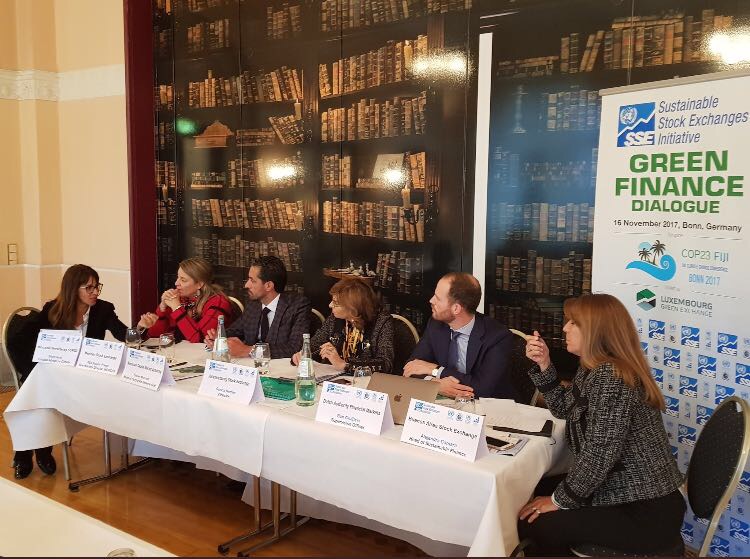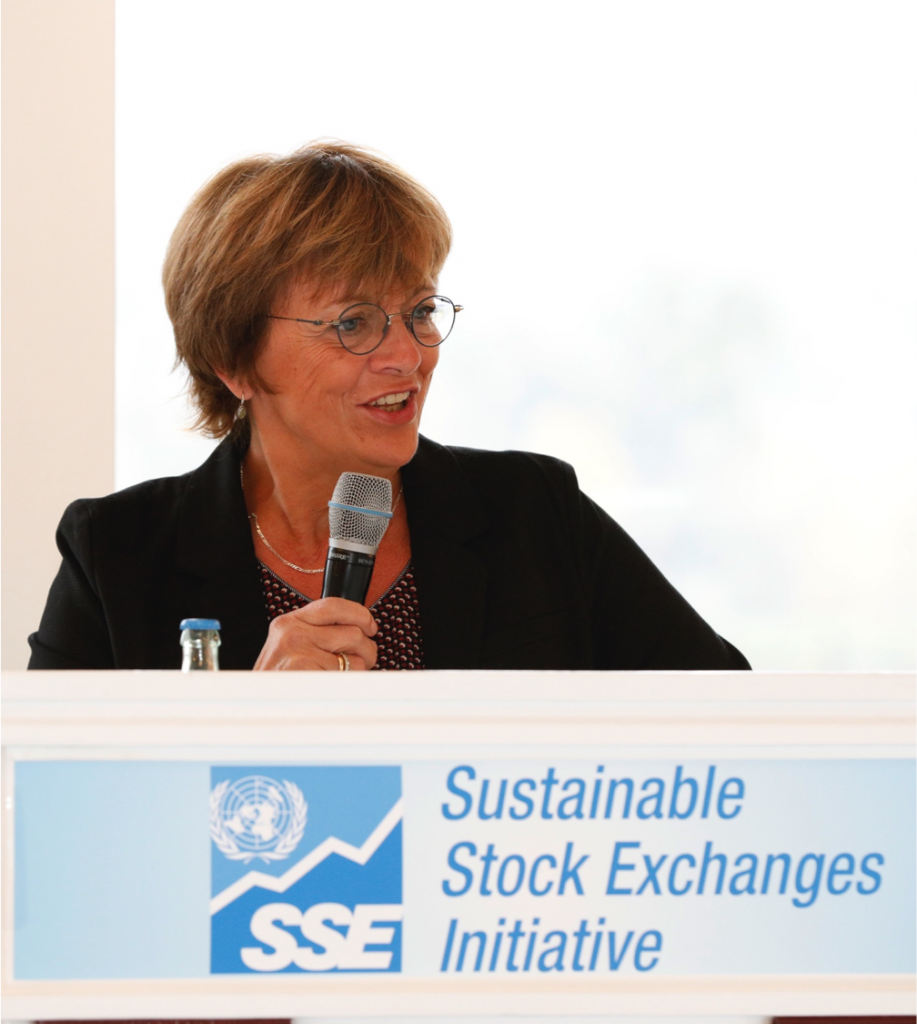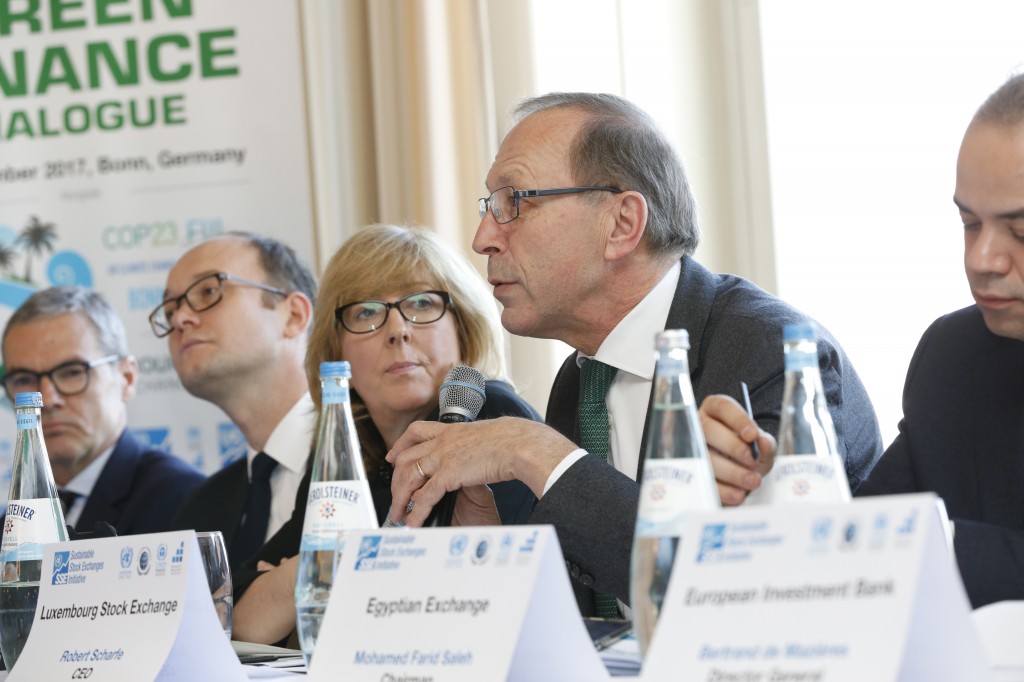“ The fact that Luxembourg’s Stock Exchange has taken the lead in this initiative shows once again that Luxembourg’s financial center is at the forefront of sustainable finance,” said the Minister of Finance of Luxembourg H.E. Pierre Gramegna.
UNCTAD Deputy Secretary General Isabelle Durant giving the opening remarks for the SSE Green Finance Dialogue
“Transitioning our economies to a sustainable footing will require innovative forms of finance and investment, which is why we need more collaboration between policy makers and capital markets to help us deliver on our global climate commitments,” said Isabelle Durant, Deputy Secretary General of UNCTAD. “We are engaging with stock exchanges and capital market leaders to encourage them to demonstrate leadership, seize the opportunities that green finance offers, and help us transition to the sustainable economies of the future.”
“We welcome the leadership taken by some pioneering stock exchanges on green finance,” said Fiona Reynolds, Managing Director of the PRI, who moderated a high-level panel at the event. “We call on all stock exchanges to work with investors, issuers and regulators to take steps to support the transition to a low carbon economy.”
European Investment Bank’s President, Werner Hoyer said, “Stock exchanges can play a decisive role in triggering the trillions needed to ward off a global tragedy. Therefore, I very much welcome today’s release of this important publication by the UN Sustainable Stock Exchange. I hope that actions will soon follow words and that this plan, which highlights two crucial aspects: promoting green products, and greening financial markets, will stimulate supply and the demand for green finance.”
He added, “It is estimated that 90 trillion dollars of sustainable investment is needed by 2030. The path to a 2 degree world may look long and steep for climate activists. But I firmly believe that green bonds – pioneered by the European Investment Bank 10 years ago – alongside other green financial instruments, can help us reach this target.”
“Seeing climate change at the top of stock exchanges’ agendas is yet another sign that things are moving forward rapidly in addressing this global challenge. The development of green finance makes new options more accessible to a larger array of investors and contributes to accelerating the transition to a low-carbon economy and building more sustainable markets for future decades,” said Jean-Luc Gravel, Executive Vice-President, Equity Markets of Caisse de dépôt et placement du Québec. “In the wake of the Paris Agreement and evolving consumer choices and technology, markets are already changing rapidly. This will create new attractive investment opportunities for our clients. Over the next three years, we will increase our investments in low carbon assets by over $8 billion. We have also committed to reducing our carbon footprint by 25% per dollar invested by 2025. These objectives are ambitious, achievable and will be subject to reporting.”
This SSE guidance offers action points and guidance for stock exchanges and constitutes a roadmap towards our ambitious goal of simultaneously stimulating demand and supply for green investing.”
“This guidance document provides stock exchanges in any market with a solid platform to ensure the development of green finance initiatives in their market and to support their Nation’s achievement of their Paris Agreement commitments,” said Patricia Espinosa, Executive Secretary of the United Nations Framework Convention on Climate Change. “We applaud the SSE and its Advisory Group on Green Finance for this exceptional work in ensuring all stock exchanges have the tools to succeed in transitioning to green markets.”
The event was organized by the United Nations Sustainable Stock Exchanges (SSE) initiative and hosted by the Luxembourg Green Exchange. Additional organization support and expertise was provided by Carbon Tracker, Ceres, Carbon Disclosure Standards Board (CDSB), Climate Bonds Initiative, Global Reporting Initiative (GRI), S&P Dow Jones Indices. The event was funded in part by a collaboration established by the Gordon and Betty Moore Foundation. The event took place alongside the 2017 United Nations climate change conference (COP23).


